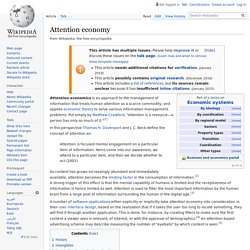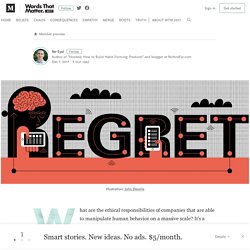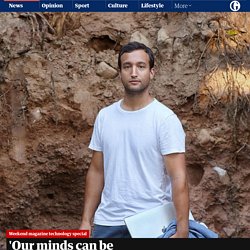

Attention economy. Economic view of human attention as a commodity Attention economics is an approach to the management of information that treats human attention as a scarce commodity, and applies economic theory to solve various information management problems.

Put simply by Matthew Crawford, "Attention is a resource—a person has only so much of it. "[1] In this perspective Thomas H. Attention is focused mental engagement on a particular item of information. As content has grown increasingly abundant and immediately available, attention becomes the limiting factor in the consumption of information.[2] A strong trigger of this effect is that the mental capability of humans is limited and the receptiveness of information is hence limited as well. History[edit] Herbert A. [I]n an information-rich world, the wealth of information means a dearth of something else: a scarcity of whatever it is that information consumes. Intangibles[edit] Social attention, collective attention[edit] Applications[edit] Web spam[edit]
Designers Need the “Regret Test” What are the ethical responsibilities of companies that are able to manipulate human behavior on a massive scale?

It’s a question one hopes technologists and designers ask themselves when building world-changing products — but one that hasn’t been asked often enough. Operant conditioning, intermittent reinforcement, the search for self-actualization — the techniques used by product managers at the world’s largest companies are equal parts psychology and technology. As Sean Parker, founding president of Facebook, recently acknowledged, the company has long been engaged in the business of “exploiting a vulnerability in human psychology.”
Our gadgets and apps are more persuasive than ever. Yet for the makers of these technologies, few guidelines exist on how to change user behavior ethically. How Tech STEALS Your Attention [ RSA : Franklin Foer ] 'Our minds can be hijacked': the tech insiders who fear a smartphone dystopia. Justin Rosenstein had tweaked his laptop’s operating system to block Reddit, banned himself from Snapchat, which he compares to heroin, and imposed limits on his use of Facebook.

But even that wasn’t enough. In August, the 34-year-old tech executive took a more radical step to restrict his use of social media and other addictive technologies. Rosenstein purchased a new iPhone and instructed his assistant to set up a parental-control feature to prevent him from downloading any apps. He was particularly aware of the allure of Facebook “likes”, which he describes as “bright dings of pseudo-pleasure” that can be as hollow as they are seductive. And Rosenstein should know: he was the Facebook engineer who created the “like” button in the first place. These refuseniks are rarely founders or chief executives, who have little incentive to deviate from the mantra that their companies are making the world a better place. Finally, Eyal confided the lengths he goes to protect his own family. How better tech could protect us from distraction [ TED Talk : Tristan Harris ] The manifesto. Big Tech Companies.
Advertising. Hyperconnexion. Dopamine. Fear Of Missing Out. Lack of Focus. Attention Balance. Design With Care. Design for Time Well Spent. Set up your iphone for mindfulness. 7 Strategies for Facing Your Internet/TV Addiction.
Cognitive Science. The Existential Threat of Big Tech [ RSA Replay : Franklin Foer ]